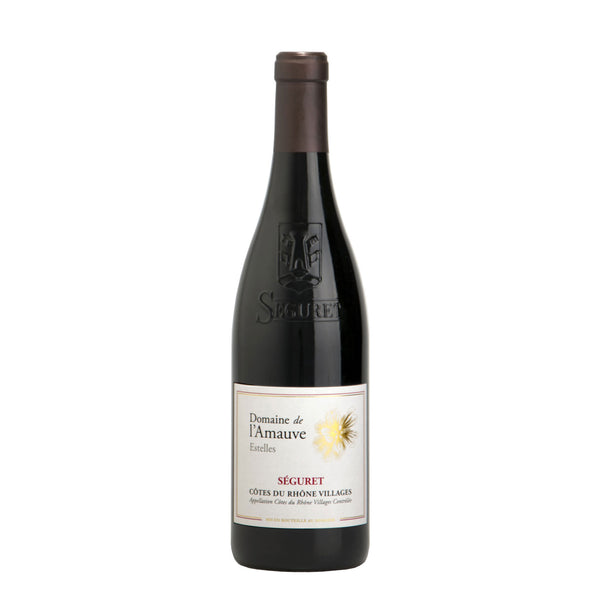Domaine de l'Amauve Côtes Du Rhône Villages SÉGURET 'Les Merrelies' 2015 & 2017 750ml
AOC: Côtes du Rhône Villages, FRANCE
Grapes: Grenache 70%, Syrah 20%, Mourvedre/Cinsault/Carignan (old vine) 10%
Alc - 14.5%vol
Drink ~ 10 years
Christian Voeux, ex oenologist and winemaker at the famous Châteaux Redon and La Nerthe in CdP, now applies his knowledge to his 11ha family vineyard, from vine growing to wine making and the ageing process. Practising Organics. Producing very limited, high quality, hand made Cote du Rhone wines.
Estate in organic conversion since 2017 and Vegan certified from 2018~.
Full bodied and well balanced, delicious young but will also improve and reward with time in good cellaring conditions. Complex aromatics of mixed spice and very ripe black fruit. Excellent with grilled meat, wild meat, red meat in sauce, and cheeses.
Reviews:
91+/100 WA Reviewed by Joe Czerwinski
Issue Date: 1st Dec 2017 The Wine Advocate
"A firmer, more muscular blend, one-third of which was aged in barrel, the 2015 Côtes Du Rhône Villages Séguret Estelles (60% Grenache, 35% Syrah and Mourvèdre and 5% Carignan and Cinsault) features ample herb and garrigue aromas, mulberry fruit and a richly textured, long finish. This wine should easily make its tenth birthday in fine condition. Drink Date: 2018 - 2025"
One of the estates making serious noise in Séguret, Domaine de l'Amauve is the familial estate of Christian Voeux, who so capably ran Château la Nerthe for many years. Now "retired," he's been putting his full energy into the domaine. The wines are among the best to emerge from this appellation, which covers a range of vineyards extending from 100 meters above sea level up to close to 400 meters. That altitude can give some of the wines higher acidity and more freshness than other villages, and that's something that's emphasized here, although there's no lack of ripeness. Most cuvées see no or little oak, while les Merrelies is aged exclusively in barriques. Voeux considers 2016 "a really special vintage," comparing it to 2010 while conceding that 2010 was more angular. "The challenge [in 2017] was to work on very soft tannins," said Voeux. "[We used] lower temperature, similar length of maceration but less remontage and pigéage."






